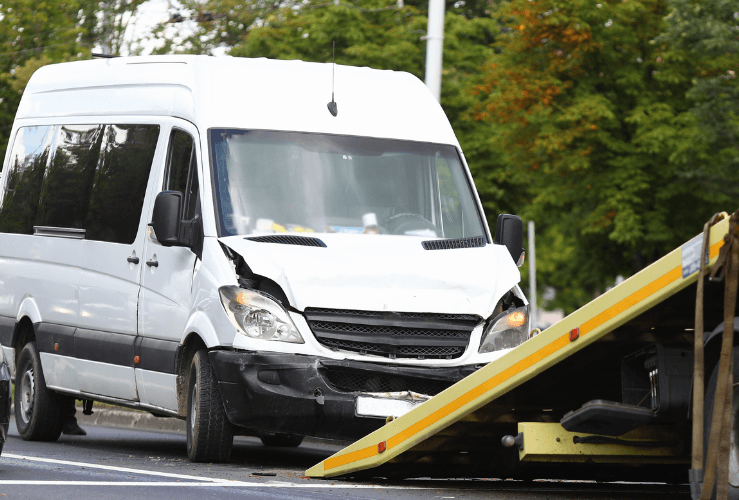A good fleet insurance company will ensure your business can keep functioning if one of your vehicles is involved in a collision, or is damaged or stolen. Read our tips for finding the best fleet insurance companies.
Looking for a good deal on fleet insurance? The following tips will help you choose a policy that gives you enough cover if the worst happens - for a premium you can afford.
1. Be ready to do your research
Making comparisons between fleet insurance providers can be more time-consuming than, say, private car insurers, because fleet insurance comparison sites don't yet exist and regular comparison sites don't offer this functionality.
However, some comparison sites work in partnership with brokers and/or insurers to help get you a quote (for which they may take a commission from, or charge a fee to, the provider).

2. The number of vehicles covered can vary
Fleet insurance policies can vary in terms of the maximum number of vehicles they will cover. Some cover up to 500 vehicles, while others are designed for smaller fleets of 15 or fewer.
Be aware of any limits, especially if you plan to grow your fleet in the future.
3. Get quotes from several providers
Just as with buying private motor cover, it's important to get a number of quotes before you take out a policy. That said, it's critical any policy you do choose provides sufficient cover for your needs; it’s not all about the cost.

4. Third Party and Third Party, Fire and Theft (TPFT) may not be the cheapest options
Just as with private car insurance, buying third party or TPFT may not be the most economical option. This is because entities or persons that take out non-comprehensive policies tend to be deemed higher risk. As such, be sure to get quotes for all three cover levels when you approach a fleet insurance company.
5. Shop around before renewing your fleet insurance cover
Different insurers will view your company and driver history and information in different ways. This data includes things like claims history, vehicle type, depot/operational area, driver ages and more.
If you've built up a sizable no claims discount, it may be possible to carry this across to another insurer. If you’re already with a fleet insurer, don’t assume they are offering the cheapest deal. It’s still worth getting some quotes.
6. Cheap quote? Ask why
The best fleet insurance companies are not always the cheapest. If you're offered a quote that is cheaper than others you've got, scrutinise the details. Does that cheap quote come with a steep excess? Does it have less coverage than other deals?
Remember that a good fleet insurance policy will keep your business moving if something goes wrong - so saving money shouldn't be your only concern. If you're offered a cheap quote by a provider via a comparison site partner, be sure to read the small print.
7. Not all insurers are online
Believe it or not, not all fleet insurers have websites that offer instant quotes. For example, with NFU Mutual you'll need to contact one of its broker centres (although, of course, it does have an information website).
It’s important to take this into account when making fleet insurance comparisons.
8. Consider employing drivers aged 25 or over
If keeping costs down is key, you may be able to get cheaper quotes if all of your drivers are aged 25 or over. This is because drivers below this age are considered higher risk (i.e., they are statistically more likely to be involved in an accident). However, bear in mind that this will reduce the pool of potential drivers.
9. Does the provider cover specialist vehicles?
Standard fleet insurance - even those with ‘Any Vehicle’ coverage - may not cover specialist vehicles like fork lift trucks or excavators. If you operate specialist vehicles, make this clear when obtaining quotes.
10. No Claims Bonus may not make up for a high premium
A 30 per cent discount on £6,000 is a better deal than a 50 per cent reduction on a £9,000 premium.
Also, double-check any prospective fleet insurance company will honour your existing NCD when obtaining a quote.



